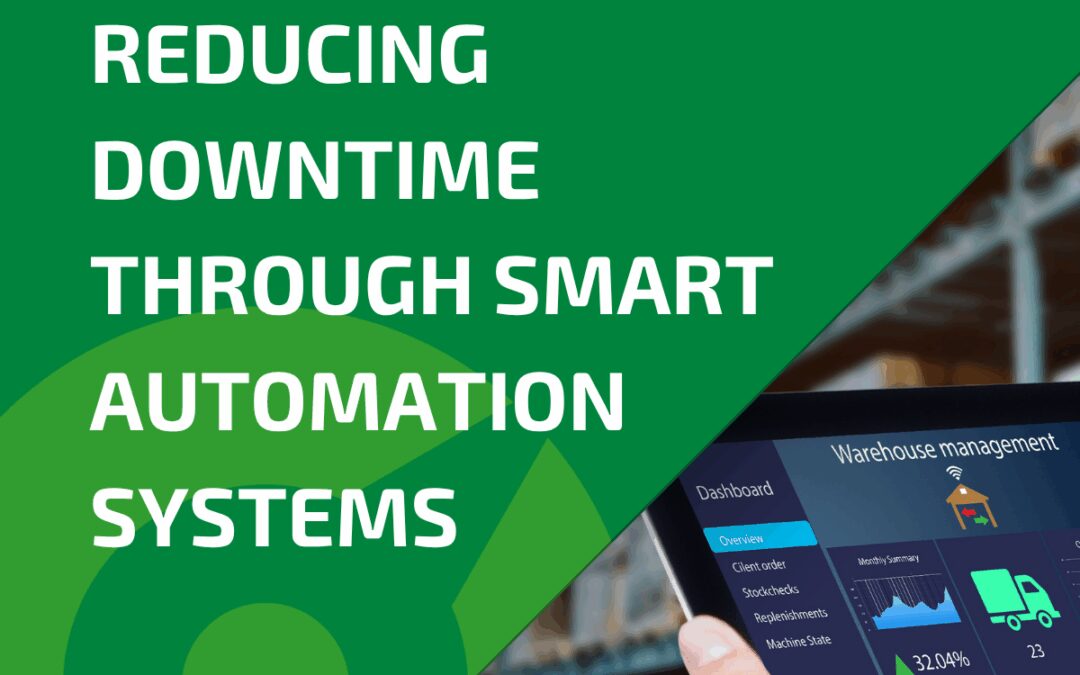In industry, downtime is one of the most costly and disruptive challenges a business can face. Whether planned or unplanned, every moment a production line stops equates to lost productivity, delayed deliveries, and increased operational costs.
The good news? Smart automation systems are redefining how downtime is managed and in many cases, how it can be avoided entirely.
At BONNER, we understand that automation is not simply about speeding up processes, but about building resilient, intelligent systems that support operational continuity. By integrating smart automation tools into your infrastructure, your business can shift from reactive maintenance to proactive optimisation.
In regulated industries, such as pharmaceuticals or food processing, downtime can also trigger compliance issues or product spoilage, further escalating the impact. This underlines the need for robust systems that can respond and recover quickly, or ideally, avoid the interruption altogether.
What Is Smart Automation?
Smart automation refers to a more advanced and interconnected approach to control systems. It involves the use of connected devices, data analytics, artificial intelligence, and machine learning to deliver real-time insights and support autonomous decision-making. It’s not just about replacing manual work, it’s about creating systems that can think, adapt, and optimise themselves.
These systems typically include industrial IoT sensors, programmable logic controllers (PLCs), SCADA and MES platforms, and predictive analytics tools. Together, they form an integrated network that allows organisations to monitor performance continuously, adapt to process changes, and react quickly to emerging issues. BONNER partners with leading automation technology providers to deliver scalable and secure solutions, designed specifically for our clients’ operational environments.
Predictive Maintenance: A Game Changer
One of the key advantages of smart automation is its ability to support predictive maintenance. Rather than relying on fixed schedules, predictive maintenance uses real-time data to determine the health of equipment. This means machines are serviced only when necessary, before a breakdown occurs but without wasting resources on unnecessary checks.
For example, sensors can monitor vibration levels, temperature, or power consumption and trigger alerts when readings move outside normal thresholds. This gives maintenance teams the opportunity to investigate and act before a minor issue escalates into a costly failure. Predictive maintenance extends the lifespan of equipment, prevents unexpected halts, and allows companies to plan maintenance activities around production schedules.
Real-Time Monitoring and Alerts
Another critical capability of smart automation is continuous real-time monitoring. With data flowing constantly from sensors and systems, operators can detect anomalies and respond immediately. Should a piece of equipment begin to operate outside of its usual parameters, alerts can be sent directly to maintenance personnel, either on-site or remotely.
This approach supports a more agile and responsive maintenance environment. Instead of waiting for manual checks or full system failures, teams can identify and resolve problems quickly. BONNER supports clients in implementing intelligent dashboards and alert systems, ensuring that critical insights are delivered clearly and can be acted upon without delay.
Redundancy and Failover Planning
Redundancy is another vital element in reducing downtime. By designing systems that have built-in backups; such as duplicate controllers, alternative power supplies, or network failovers, organisations can ensure continued operation even if one element fails. This is particularly important for continuous production environments, where even brief interruptions can result in substantial losses.
BONNER works with clients to identify where redundancy can be most effectively introduced, without excessive cost or complexity. Whether it’s duplicating a critical sensor or configuring a failover for a network connection, thoughtful design can dramatically improve system resilience.
Simplifying Complexity Through Integration
As facilities grow and evolve, it’s common to end up with a patchwork of legacy systems, new machinery, and disparate software platforms. Poor integration between these components is a common cause of unplanned downtime, as systems struggle to communicate effectively or share data.
Smart automation provides a solution through the seamless integration of devices and platforms. It brings together all elements of a production environment into a single, cohesive architecture. This not only improves data visibility and accuracy but also makes troubleshooting far more efficient. BONNER offers tailored integration services to help streamline operations and ensure compatibility across all layers of infrastructure.
Empowering Your Workforce
A successful automation strategy isn’t just about technology, it’s about people. While automation can reduce the need for manual interventions in repetitive or hazardous tasks, it also enables staff to focus on more strategic, value added activities. Empowering operators and maintenance teams with real-time information, intuitive controls, and clear visualisation tools allows them to make better decisions, faster.
Compliance, Quality, and Traceability
Automation plays a vital role in supporting quality and regulatory compliance, particularly in sectors with stringent traceability requirements. In such industries, downtime can compromise product quality or disrupt audit trails, leading to penalties or reputational damage.
With the right systems in place, automation can generate detailed logs, maintain digital batch records, and automate quality control checkpoints. This ensures consistency and reduces the risk of human error. BONNER’s solutions are designed to support your compliance efforts while enhancing operational transparency.
Choosing the Right Partner – Choose BONNER
Implementing smart automation requires careful planning, technical expertise, and a deep understanding of your operational needs. That’s why choosing the right partner is essential. BONNER works closely with clients to assess their current systems, identify areas for improvement, and design custom automation strategies that deliver real results.
To find out how BONNER can help reduce downtime in your facility through smarter automation, visit bonner.ie or contact our team to start a conversation.
